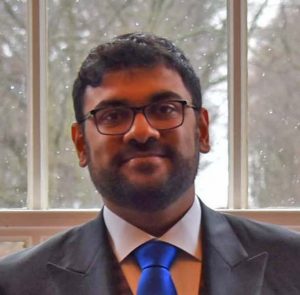In this interview as part of the Early Career Innovators series, recognising the amazing translational work being done by postdocs and non-tenured researchers at University College London (UCL), Dr Hemanth Ramesh Nelvagal highlights his Cell and Gene Therapy Therapeutic Innovation Network (TIN) Pilot Data Fund awarded project, developing a novel approach of modulating gene expression to improve the therapeutic potential of gene therapy.
What is the title of your project and what does it involve?
The title of my project is “Developing controllable gene therapy for lysosomal storage disorders (LSDs)”.
This pre-clinical study proposes developing and testing a novel therapeutic approach of modulating the expression of a transgene after it has been delivered. Utilising an orally administered drug, we aim to increase the expression of a delivered transgene after its delivery into cells.
What unmet medical need does your project address?
In currently utilized gene therapies, there are limited ways to modulate or regulate the expression of a transgene after its delivery. Such modulation would be crucial in improving the therapeutic potential of the gene therapy. A large medical need therefore exists to be able to deliver and express transgenes at appropriate physiological concentrations to maximise therapeutic potential and safety.
We therefore wanted to test a gene therapy approach neurological diseases with the ability to express a gene at the required physiological levels as well as to be able to modulate gene expression after administration, which would provide an entirely novel means of managing gene therapies.
Can you highlight any challenges you have experienced as an early career researcher (ECR) in translation?
I think it is hard for ECRs to devote time and have the resources to test new ideas as well as to establish themselves in a field of research, without the appropriate support in place. I therefore believe that I am very fortunate to have mentors who have allowed me to explore different avenues of research and provided me with great exposure in terms of developing collaborations and presenting work at various conferences.
Why did you want to apply to the Cell & Gene Therapy TIN Pilot Data Scheme?
Resources such as the Cell & Gene Therapy TIN Pilot Data Fund allow ECRs to explore new and innovative ideas as well as develop preliminary data for future fellowship or grant applications. It was therefore an attractive opportunity for me as I try to take my first step towards independence. Additionally, this opportunity will provide me with important experience in project management.
How did you find the process for the TIN Pilot Data Scheme?
The application process was very straightforward, and I appreciated learning how to frame my ideas in a succinct manner for the initial application. The ACCELERATE workshop was very useful for the feedback I received in my presentation style and how to communicate my ideas effectively. Lastly, the “Dragon’s Den” format of the interviews was a refreshing change of tone from my experience with other grant or fellowship applications, and I enjoyed having an honest conversation about my proposed project with the panel.
What do you hope to achieve in the 6 months duration of your TIN funded project?
My hope during this 6-month project is to be able to show that the novel therapeutic approach is feasible while also developing the skills to manage research projects with a degree of independence. Further, having only recently joined the lab of Prof. Ahad Rahim, I hope that this project provides the foundation for future studies where we can test this approach in animal models of disease. I have already begun generating the DNA plasmids that I hope to be able to test these soon. My hope is that this approach will make gene therapy safer and more effective in the future.
About Dr Hemanth Nelvagal

Hemanth Ramesh Nelvagal is a senior postdoctoral researcher in the lab of Prof. Ahad Rahim at the UCL School of Pharmacy. He completed his undergraduate medical degree in Bangalore, India, before undertaking a MSc in Neuroscience at King’s College London. He then joined the laboratory of Prof. Jonathan Cooper for his PhD studies, working on understanding the pathomechanisms and developing therapies for Batten disease, a group of rare neurodegenerative lysosomal disorders.
He then continued this work during his postdoctoral training, first at UCLA and then at Washington University in St. Louis. He has collaborated with academic groups as well as pharmaceutical companies on a variety of translational therapeutic projects for these fatal childhood diseases. In 2021, he joined Prof. Rahim’s lab to develop gene therapy for Niemann-Pick Type C1, another neurodegenerative lysosomal disorder.
 Close
Close



